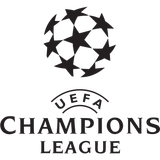
Champions League drama gives World Cup tough act to follow
A spirit of chaos and adventure swept through this season's Champions League, serving up a record number of goals and almost non-stop drama when the top teams collided.
It was club football at its most thrilling. Fans might never have had it so good.
So can the World Cup, supposedly the zenith of the international game, come close to matching it?
History suggests we shouldn't get our hopes up, despite most of the world's best players on show in Russia.
''National teams often lag behind the clubs, and it's understandable why,'' said Jonathan Wilson, author of ''Inverting The Pyramid: The History of Football Tactics.'' ''There's a tendency to keep things pretty simple at international level.''
Wilson's prediction for the next few weeks in Russia?
''I think there will be a lot of games featuring teams with eight men behind the ball and just seeing what happens,'' he said. ''It could be pretty unedifying.''
This viewpoint stems from the simple notion that international coaches don't get as much time with their players as their club counterparts, and that it's much easier - especially for the weaker nations - to organize a compact defense than a fluid attack.
There are other factors in play, too. There's no transfer market in international football so it's harder for coaches to mold their ideal team. The best coaches are often found in the club game because of the financial riches on offer. And there's often an in-built conservatism at major tournaments.
Carlos Alberto Parreira, Brazil's World Cup-winning coach from 1994, is now a member of FIFA's technical study group - comprising former players and national-team coaches who will analyse games and produce a report later this year - and he predicted an approach that will see teams ''defend with as many players as possible'' and play on the counterattack.
''Very compact teams, with lots of players behind the ball, closing down space and playing at pace on the attack,'' Parreira said.
FIFA, of course, is hoping for a festival of football over the coming weeks, following on from a World Cup in Brazil in 2014 that the governing body's panel of coaching experts said saw teams ''play positively and do everything to win a game rather than merely `not lose.'''
There were 171 goals that tournament at an average of 2.67 per game, tying the record set in France in 1998. In 2002, '06 and '10, the average did not get above 2.52.
In this season's Champions League, however, there were 401 goals at an average of 3.2 per game - rising to 3.6 per game in the knockout stage. It was the highest total since the tournament's rebrand in 1992, with only the 1975-76 European Cup delivering more, as coaches saw attack often as the best form of defense.
Marco van Basten, FIFA's chief technical development officer, told The Associated Press that football has been played more positively since Barcelona's recent glut of trophies using the approach implemented by Johan Cruyff at the club in the 1990s and previously by Dutch coach Rinus Michels - with his ''Total Football'' - in the mid-1970s.
''As a consequence of the sporting successes Barcelona gained with that playing style, many coaches like their teams to play attacking football,'' Van Basten said in an email, ''and for fans this is definitely more spectacular to watch. I think it is very positive that everyone appreciates this attractive style of play, but in the end results count as well.''
Don't expect tactical surprises in Russia. The club game has left international teams in its wake since the 1960s, before which nations - like Hungary with its 3-2-1-4 in 1954 and Brazil with its 4-2-4 in 1958 - arrived at World Cups deploying innovative formations that dumbfounded opponents.
The most common formations this summer will be 4-2-3-1, which was widely used in 2010 and '14, and the 4-3-3 used by Liverpool and Real Madrid on their runs to the Champions League final. However, the three-man defense has made a comeback of sorts this year, and England, Argentina and Belgium are among those set to adopt it in Russia.
Most coaches will play with one out-and-out striker and want to dominate midfield. Having a pressing game is the vogue - Brazil, under forward-thinking coach Tite, is the latest high-profile nation to do so, joining the likes of Spain, Germany and England - but that requires time to perfect and master, even at club level.
''No team will win the World Cup without pressing,'' Wilson said. ''But I think there will be a far greater tendency to sit deep and try to absorb pressure, because it's easier.''
That's what largely happened at the expanded European Championship in 2016, featuring 24 teams for the first time. The quality of football was watered down as the weaker nations packed their defenses and picked their moments to play on the counterattack.
That could be the case in a 48-team World Cup, which FIFA is planning to introduce from as early as 2022 in Qatar.
As it is, 32 nations are heading to Russia and neutrals will be hoping the unruliness of this season's Champions League is infectious.
---
Steve Douglas is at www.twitter.com/sdouglas80


